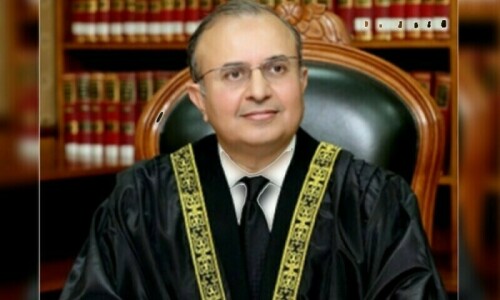Imagine spending 21 years at a place where you’re loved, you’re performing really well and neither you nor your employers have hinted that your time might be coming to a close. Now imagine you wake up one day and find out that you won’t be allowed to continue at your beloved place. This is precisely how August 5 must have felt for Lionel Messi.
Messi enrolled in the Barcelona youth academy in February 2001, after a successful trial in September 2000. The first team director at the time, Charly Rexach, offered Messi his first contract on a piece of napkin.
Within three-and-a-half years, after passing through a growth spurt and aged 17, Messi was knocking on the doors of the first team. In total, he spent 17 seasons with the first team, won a staggering 35 trophies with Barcelona and scored an incredible 672 goals for the Catalan club in all competitions.
The little, shy boy from Rosario was touted for greatness by a lot of legendary names from a very young age. Another Barca great, Ronaldinho, went as far as to say that he — Ronaldinho — wasn’t even the best player at his club, let alone the world, in his Ballon d’Or acceptance speech in 2005.
But no one could have predicted just how big an impact Messi would have on the club. Let’s dive into some stats.
Barcelona won five UEFA Champions League titles, four of them with Messi (although he did not play in the 2006 final due to an injury). In Messi’s 17 seasons at the club, Barcelona won the domestic league 10 times. A Barcelona player has won the Ballon d’Or — the most prestigious individual award for football players — 12 times, and half of those wins are Messi’s. According to some accounts, Messi has scored a little more than 7 per cent of all the goals scored in Barcelona’s 121-year history.
Football fans all over the world are in shock to learn about Lionel Messi’s departure from FC Barcelona, the club he practically grew up with
During his time at Barcelona, Messi became a bona fide global superstar. One of the most recognised people on the planet, one of the richest sportspeople in the world, with massive following wherever he went.
His rivalry with Cristiano Ronaldo has been a hot topic for pundits and social media aficionados alike. For the nine years they were both in Spain, their meetings in the ‘El Clasico’ generated viewership of around 100 million, a massive number, considering at least two such matches took place every season.
Just compiling a highlight reel to fully capture the genius Messi has shown in the colours of Barcelona is an arduous task:
• His first ever goal, rushing on to a Ronaldinho through-ball before lobbing the Albacete keeper against Getafe in the semi-final of the 2007 Spanish Cup (coincidentally the goal was voted by fans as the best in Barcelona history);
• The stunning header against Manchester United in the 2009 UEFA Champions League en route to the first treble in Spanish footballing history;
• The mesmerising run to go with Peter Drury’s commentary in the semi-finals of the 2011 Champions League against Real Madrid. The long-range curler against Manchester United in the final a few weeks later;
• Five goals against Bayer Leverkusen in a Champions League match and 91 goals overall in the calendar year 2012;
• Sitting down Jerome Boateng before lobbing Manuel Neuer in the semi-finals of the 2015 Champions League;
• The wonderful solo goal against Athletic Bilbao in the final of the 2015 Copa del Rey;
• The iconic celebration where he held his shirt for the crowd after scoring a dramatic last-minute winner in the El Clasico in 2017;
• The sumptuous freekick against Liverpool in the semi-finals of the 2019 Champions League;
• The sensational finish against Athletic Bilbao in the final of the 2021 Copa del Rey, as he won the trophy for the seventh time; just to mention a few.
So what happened that brought an end to this fairytale? A lot of us would remember an agitated Messi handing in a transfer request last summer. He was frustrated with the lack of ambition shown by the board, claiming he still wanted to challenge the elite clubs at the grandest stage, the Champions League.
He was also unhappy with how the president of the club, Josep Bartomeu, was running the footballing side of the business. However, no club could realistically trigger the €750 million release clause Messi’s contract had, and the board declined to release him for free, so Messi had to stay.
Over the course of the season, Bartomeu resigned, and Joan Laporta was elected the new president. Messi was content with the direction Laporta wanted to steer the club and decided he would stay at the club he so dearly loves.
Messi’s contract ran out on July 1 this year, making him a free agent. After completing his successful journey in Copa America with Argentina, he returned to Spain, ready to sign a new contract. What happened was quite the opposite: Laporta announced that Messi would be leaving, even though they wanted him to stay.
He explained that, with Messi’s salary, the ratio of the wage bill and the club’s revenue was 110 per cent. And that was after Messi had agreed to take a 50 percent cut, which brought his annual earnings down to €20 million. Without Messi, the ratio is still a massive 95 per cent, which means that Barcelona cannot keep Messi even if he decides to listen to Twitter and start playing for free. That also means that Barcelona cannot yet register its new signings Memphis Depay, Eric Garcia and the injured Sergio Aguero.
I won’t dive much into the financial details for the sole reason that they’re boring, but a simple question pops up: how was Barcelona paying its players before Messi’s contract ran out? Barcelona’s annual salary cap for the 2019-20 season was €671m. Due to the coronavirus pandemic and the board’s grotesque handling of resources, the cap dropped to €347 for the 2020-21 season.
For this season, it was expected to be around €200m. And since Messi is out of contract and hence a ‘new player’, he cannot be registered till the wage bill is under the cap.
So why didn’t the club do something about this? Well, you can’t just kick a player out of contract, can you? Some players agreed to take pay cuts, and some promising youngsters were sold to raise revenue and decrease wages. But the chronic financial mess that has been brewing over the past decade or so cannot just be rectified with the sale of a few youngsters.
Even in affluent times, Barcelona’s wage bill was almost 70 per cent of the total club revenue. Throw in the extravagant but hardly successful signings of players such as Ousmane Dembele (€135m), Philippe Coutinho (€135m), Antoine Griezmann (€120m), Miralem Pjani (worth €60m, was a straight swap for the much younger Arthur Melo) and the likes of Malcom, Paulinho and Semedo for €40m, and you get a club €1.2 billion in debt.
And, as the esteemed journalist Sid Lowe puts it, “If there is one thing guaranteed to make it difficult to sell players, it is other clubs knowing you have to sell players.”
A fortnight ago, there were news reports of the private equity firm CVC buying 10 per cent of La Liga’s shares for a reported €2.7b. However, Real Madrid and Barcelona both rejected the investment, with Laporta claiming that it would have been the equivalent of a 50-year mortgage of their TV rights (CVC were to be paid a share of the annual revenue from TV rights).
Messi said goodbye to the club he dearly loves on August 8 in a press conference attended by his teammates and his family. It was emotional, the culmination of 21 years at the club with a two-minute standing ovation, tears from both sides of the microphone, messages of gratitude from past and present teammates on social media, and dumbfounded supporters lining up outside the club gates, not knowing how to process the news.
It will be weird to see Messi don a jersey other than the red and blue of the Blaugrana. FC Barcelona’s official club motto is ‘Més que un club’, which translates to ‘more than a club’. But to the supporters, Messi was FC Barcelona. He was, in all meanings of the phrase, més que un club.
The writer tweets @tahagoheer
Published in Dawn, EOS, August 15th, 2021
















































